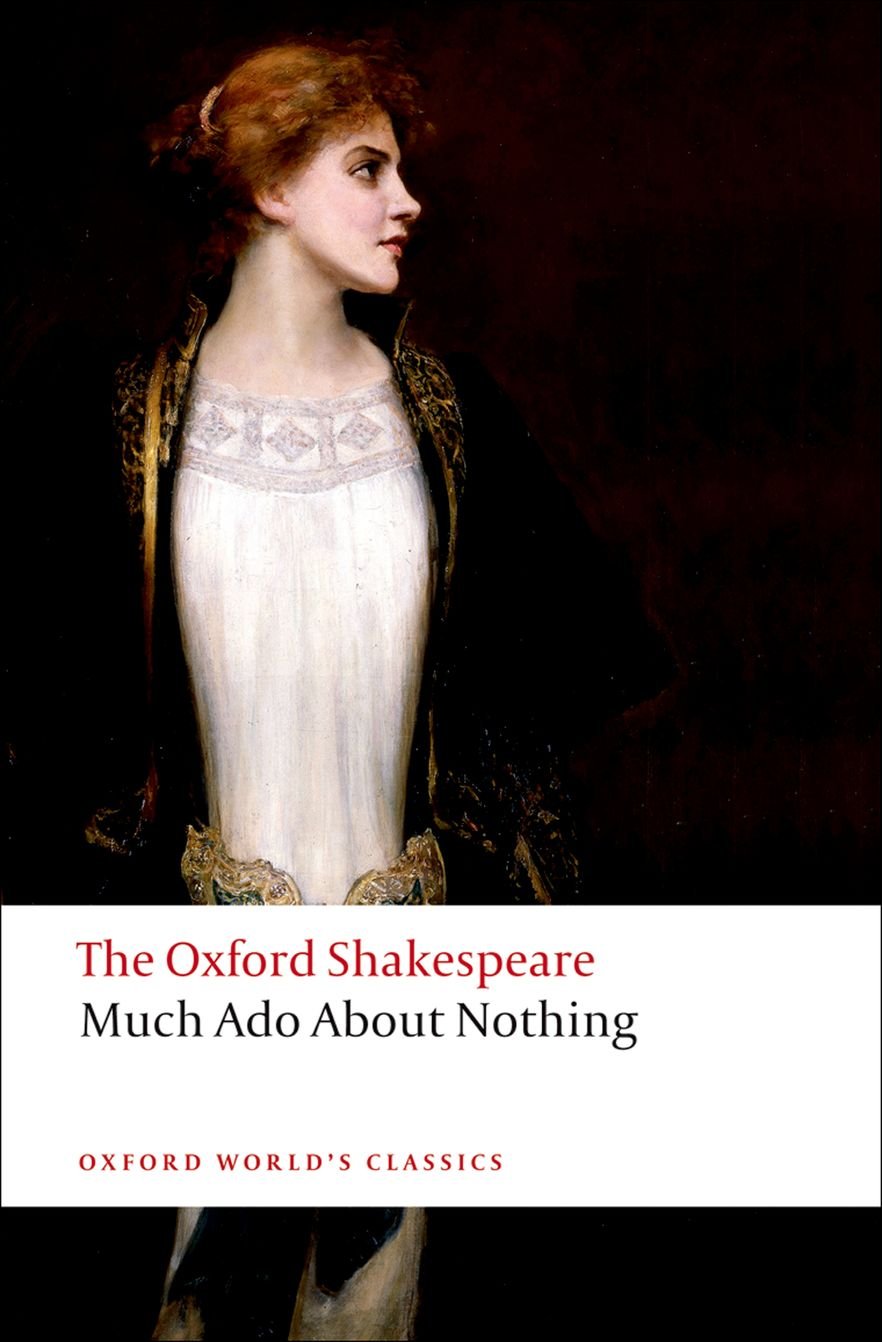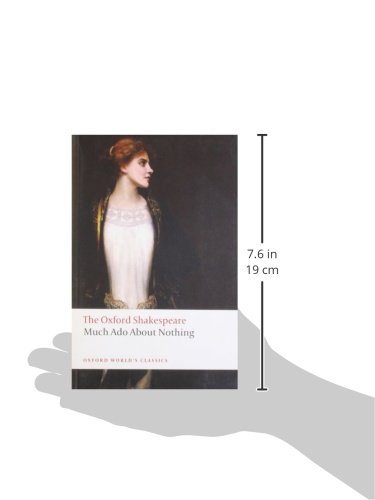Customer Services



Much Ado About Nothing: The Oxford ShakespeareMuch Ado About Nothing (Oxford World's Classics)


B**E
Five Stars
My favorite play of Shakespeare. Great read.
E**R
Real Shakespeare
Guides to the greatest Renaissance museum in Italy, the Uffizi, used to tell tourists gently, "Ladies and gentlemen, it is not the paintings that are on trial here."
A**R
Amazing play
Books brand new
R**N
"Hey nonny, nonny"
Like "The Taming of the Shrew", MUCH ADO ABOUT NOTHING features two pairs of lovers, each quite dissimilar from the other. One pair -- Claudio and Hero -- is rather conventional and insipid. Their prospective marriage is almost undone when a blackguard arranges for Claudio to espy another male entering Hero's bedroom; Claudio naturally assumes that it is Hero who is welcoming a stranger to her boudoir, but actually it is one of her maids-in-waiting. The other pair -- Beatrice and Benedick -- is unconventional, witty, and boisterous. They are attracted to one another, but they are too independent to admit it and too addicted to the witty put-down to engage in typical flirtation, so marriage between them seems blocked by a different sort of obstacle.If you sense that there might be insufficient dramatic tension in the play's plot, as sketchily outlined above, you are correct. Indeed, the only things that save the play in my mind are the sparks that fly between Beatrice and Benedick and the scintillating personality of Beatrice. She reminds me a little of the Falstaff of "Henry IV, Part I".I suspect that Shakespeare recognized that his play was rather thin gruel and could use yet another infusion of comedy, and that it was for that reason he introduced a bumbling constabulary force headed by Dogberry. Unfortunately, Dogberry is not nearly as endearing as are many of Shakespeare's comic buffoons; Dogberry is as flat and silly as a character on a sit-com produced on a shoestring budget for a second-tier cable network in what passes for culture today.The play never grabbed my attention and therefore I did not read it closely. I can report that it contains a fair amount of wit and bawdy wordplay (some of which was beyond my comprehension). I can also report that one theme has to do with marriage, which, it appears, is for women their highest calling. And that another theme has to do with the opacity and ambiguities of language.What is the significance of the title? Left to my own resources my best guess would have been that it was a sardonic comment on all the rigamarole surrounding love and the institution of marriage. But after finishing the play, I read the chapter on it in Tony Tanner's "Prefaces to Shakespeare". Tanner writes that a "thing" was common Elizabethan slang for the phallus, and that "no thing" was used -- mockingly, even insultingly -- to refer to the female genitalia. Consider then these two lines from Act IV, scene i of MUCH ADO ABOUT NOTHING:Benedick: I do love nothing in the world so well as you. Is not that strange?Beatrice: As strange as the thing I know not.
Trustpilot
1 month ago
3 weeks ago